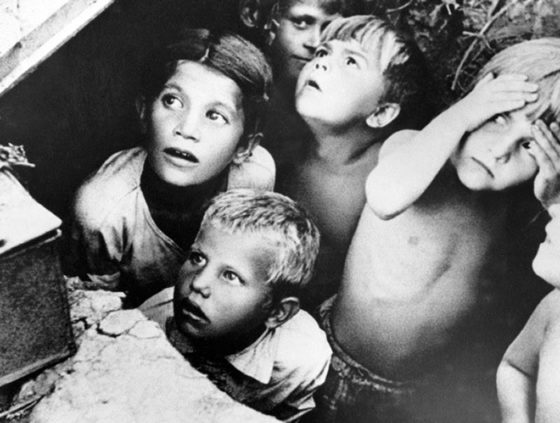
“Honor came at a high price, and the responsibility of a samurai was not to be taken lightly.”
By George Yagi Jr.
THROUGHOUT HISTORY, a number of cultures have established guiding principles to ensure martial bravery on the battlefield. In Japan, it was the samurai who embodied this warrior spirit.
The samurai existed as a military and political force from the 8th century until the 19th century. Renowned for their martial arts skills, when not feuding among themselves during Japan’s civil wars, they repelled two Mongol invasions during the 13th century, and also briefly established a presence on the Asian mainland during the 16th century.
Armed with an array of weapons including swords, spears, bows and arrows, and eventually firearms, the samurai were an intimidating presence on the feudal battlefields of Japan. With their legendary loyalty to their lords, or daimyo, they were also a formidable adversary.
The 17th century samurai, Yamamoto Tsunetomo, summarized the warrior’s guiding philosophy in his famous literary work, Hagakure: “The way of the samurai is found in death.” It was a fatalistic embrace of mortality, but at its core was the preservation of honor.

To members of the samurai class, cowardice in battle was seen as the ultimate disgrace, and in order to truly be brave, one was expected to accept death as a possibility. Offering further explanation of the bushido code, Yamamoto added:
“The way of the samurai is, morning after morning, the practice of death, considering whether it will be here or be there, imagining the most sightly <sic> way of dying, and putting one’s mind firmly in death.”
Although Yamamoto was writing long after the chaos of the Sengoku Jidai or Warring States period of Japanese history, during the civil war it was not uncommon for warriors to even burn incense inside their helmets the night before battle so that if their heads were taken, the victor would be greeted by a fragrant aroma.
Under such circumstances it is unsurprising that samurai also embraced the symbolism of the sakura, or cherry blossom. It was said that a warrior’s life was much like the sakura: After a brief moment of beauty, the delicate flowers are carried away by the slightest breeze.
Upon going into battle, Yamamoto further advised:
“When meeting difficult situations, one should dash forward bravely and with joy. It is the crossing of a single barrier and is like the saying, ‘The more the water, the higher the boat.’”
In addition to demonstrating bravery in combat, another method to preserve honor, particularly when facing defeat, capture or some other disgrace, was the act of seppuku or ritual suicide.

A warrior performed seppuku by plunging a dagger or sword into the left side of his abdomen and then drawing it across to the right. To demonstrate that this was an act of sheer will, the blade might be used to make as many as two additional cuts in the same manner. As this was an excruciatingly painful way to die, in some circumstances another warrior might decapitate the samurai once the blade entered the belly. If this were a friend or loyal retainer, they would then take the severed head and hide it so that the enemy could not claim it for a reward, something often done if the fallen was a feudal lord. In this manner, a samurai’s honor would be preserved and the enemy denied the spoils of war.
Another major reason to avoid disgrace on the battlefield was that it reflected poorly upon the warrior’s family. Yamamoto argued:
“If one is born into a prominent family that goes back for generations, it is sufficient to deeply consider the matter of obligation to one’s ancestor’s, to lay down one’s body and mind, and to earnestly esteem one’s master.”
Actions by a samurai could have consequences well beyond the grave, and an act of cowardice would bring ruin on the family name.

Yamamoto summarized:
“After his death his corpse would be smeared with disgrace, his guiltless descendants would receive the dishonor for having been born in his line, his ancestors’ name would be dragged down, and all the members of his family would be blemished.”
Should a family suffer such a fate, it would fall upon one of the survivors to restore their lost honor, normally through a brave act in battle or some other important service to a feudal lord.
When translated into English, the word samurai means, “to serve.” Warriors were expected to act for the greater good of society, and protect their master and people, sacrificing their lives if necessary.
Similar to chivalry in the Western world, bushido differed in its acceptance of death. Honor came at a high price, and the responsibility of a samurai was not to be taken lightly. Death was always before them, and the bushido code demanded that: “Even if it seems certain you will lose, retaliate.”
However, despite its initial harsh appearance, as Yamamoto succinctly summarized:
“Whatever you do should be done for the sake of your master and parents, the people in general, and for posterity.”
These were without doubt, noble ideals for Japan’s warrior class, even vital, as Yamamoto Jin’emon argued: “A man exists for a generation, but his name lasts to the end of time.”
ABOUT THE AUTHOR: Dr. George Yagi Jr. is an award winning author and historian at the University of the Pacific. Follow him on Twitter @gyagi_jr










3 thoughts on “The Way of the Samurai – Why Honor Was Everything to Japan’s Legendary Warriors”